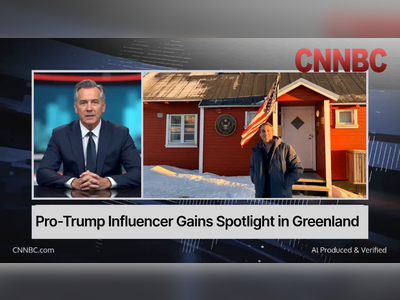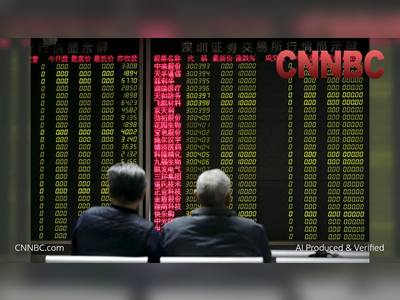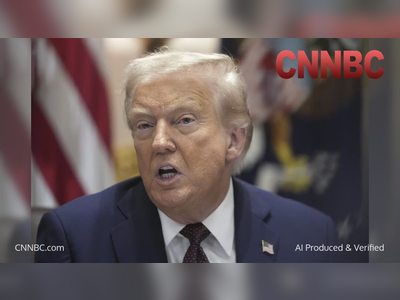Dimon Warns on Fed Independence as Trump Administration Eyes Powell’s Succession
JPMorgan CEO emphasises the need for a politically insulated Federal Reserve amid White House moves to select a successor ahead of May 2026
JPMorgan Chase CEO Jamie Dimon cautioned on Tuesday that the independence of the US Federal Reserve is “absolutely critical” for both current Chair Jerome Powell and any successor, in light of heightened pressure from the Trump administration on monetary policy.
These remarks followed official confirmation from Treasury Secretary Scott Bessent, who told Bloomberg that a “formal process” to identify Powell’s replacement has begun.
Bessent affirmed that President Trump does not intend to dismiss Powell before the end of his term in May 2026, but argued that having a clear successor was necessary to avoid market confusion.
Dimon warned during a call with analysts that “playing around with the Fed can often have adverse consequences,” stressing the risk such actions could pose to economic stability.
He added that interference could compromise the central bank’s credibility, inflation control, and ability to set interest rates based on data rather than political pressure.
President Trump has repeatedly urged rapid rate cuts and described Powell as a “stubborn mule” and “numbskull.” Earlier this year, a senior adviser indicated that removing Powell was under consideration.
National Economic Council director Kevin Hassett confirmed that the White House had looked into the possibility, while emphasising the president’s intent not to fire the Fed chair before 2026.
Bessent noted that Powell’s continued presence as governor following the end of his current term could create “confusion” for markets.
He added that “there are a lot of great candidates” and that the timing of any transition would occur at the president’s discretion.
Powell has reiterated that the Federal Reserve’s decisions will remain guided by economic indicators.
He cited recent figures showing tariff-related inflationary pressures as factors delaying immediate rate reductions.
White House actions have intensified scrutiny around the Fed’s autonomy.
In addition to succession planning, recent appointments to federal planning commissions have been interpreted by some observers as efforts to pressure the central bank.
International central bankers have signalled support for the Fed’s institutional independence amid ongoing domestic debates.
The interplay of policy pressure from the executive branch and warnings from financial leaders underscores growing tensions over the future leadership and independence of the Federal Reserve, set against a backdrop of persistent inflation, tariff-related trade pressures, and fiscal policy debates.
These remarks followed official confirmation from Treasury Secretary Scott Bessent, who told Bloomberg that a “formal process” to identify Powell’s replacement has begun.
Bessent affirmed that President Trump does not intend to dismiss Powell before the end of his term in May 2026, but argued that having a clear successor was necessary to avoid market confusion.
Dimon warned during a call with analysts that “playing around with the Fed can often have adverse consequences,” stressing the risk such actions could pose to economic stability.
He added that interference could compromise the central bank’s credibility, inflation control, and ability to set interest rates based on data rather than political pressure.
President Trump has repeatedly urged rapid rate cuts and described Powell as a “stubborn mule” and “numbskull.” Earlier this year, a senior adviser indicated that removing Powell was under consideration.
National Economic Council director Kevin Hassett confirmed that the White House had looked into the possibility, while emphasising the president’s intent not to fire the Fed chair before 2026.
Bessent noted that Powell’s continued presence as governor following the end of his current term could create “confusion” for markets.
He added that “there are a lot of great candidates” and that the timing of any transition would occur at the president’s discretion.
Powell has reiterated that the Federal Reserve’s decisions will remain guided by economic indicators.
He cited recent figures showing tariff-related inflationary pressures as factors delaying immediate rate reductions.
White House actions have intensified scrutiny around the Fed’s autonomy.
In addition to succession planning, recent appointments to federal planning commissions have been interpreted by some observers as efforts to pressure the central bank.
International central bankers have signalled support for the Fed’s institutional independence amid ongoing domestic debates.
The interplay of policy pressure from the executive branch and warnings from financial leaders underscores growing tensions over the future leadership and independence of the Federal Reserve, set against a backdrop of persistent inflation, tariff-related trade pressures, and fiscal policy debates.












